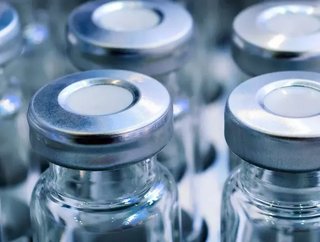Strain On The Glass Supply Chain May Delay COVID-19 Vaccine

At least 11 vaccines have now reached the clinical trials stage, between universities, science facilities and major healthcare organisations, such as Moderna, involved. A Chinese Biotech facility has also passed the first two tests for a vaccine, and will begin to move to testing on a much larger scale.
The issue that has become prevalent since vaccines have developed so quickly has been the potential shortage of glass. Vials that store any vaccine or treatment will be made of glass, meaning drugmakers around the world are racing to secure a supply of it to ensure they can produce enough for vaccines.
A bottleneck in the glass supply chain could be life-threatening, with the coronavirus still killing thousands every day around the world. The supply shortage, whilst dangerous, is also unfortunately quite likely, and could lead to a number of patients experiencing significant delays when waiting to receive the vaccine shots.
The issue with the glass supply chain is that the market is traditionally fixed, and slow-growing. This means that it is also prone to shortages, such as this one. The lack of actual glass manufacturers globally also contributes to the issue. Experts are concerned that the slow market, paired with the lack of manufacturers and the exponential rise in demand, could lead to difficulty in producing thousands of vaccine doses - let alone the billions needed.
Phyllis Arthur, BIO Vice President of Infectious Diseases, said: "That is an extraordinary surge in demand for that product, that specific piece of material.”
Experts, scientists and manufacturers are not only concerned about the glass supply chain. The urgent and sudden increase in demand could not only trigger a global shortage in the glass market, with tubing suppliers also experiencing difficulties. Dr. Rick Bright, formerly the head of the Biomedical Advanced Research and Development Authority (BARDA), filed a whistleblower complaint in May this year, bringing the lack of borosilicate tubing to attention after it sold out. Bright called on the administration of the US to prevent shortages.
"It could take up to two years to produce enough vials for U.S. vaccine needs, while some therapeutics will also require vials," Bright said. Even after the first batch of vaccines have been sourced and the shortages managed, coronavirus vaccines may have to be followed up every few years, meaning the strain on the supply chain could reappear in just a few years time.
"We're really dependent on this supply chain to remain free and available," Genentech CEO Alexander Hardy said Tuesday during a PhRMA virtual press conference. "I intersperse my day, in between helping my kids with their homework, with calls to legislators and policymakers because this supply chain topic is really a critical one right now."






